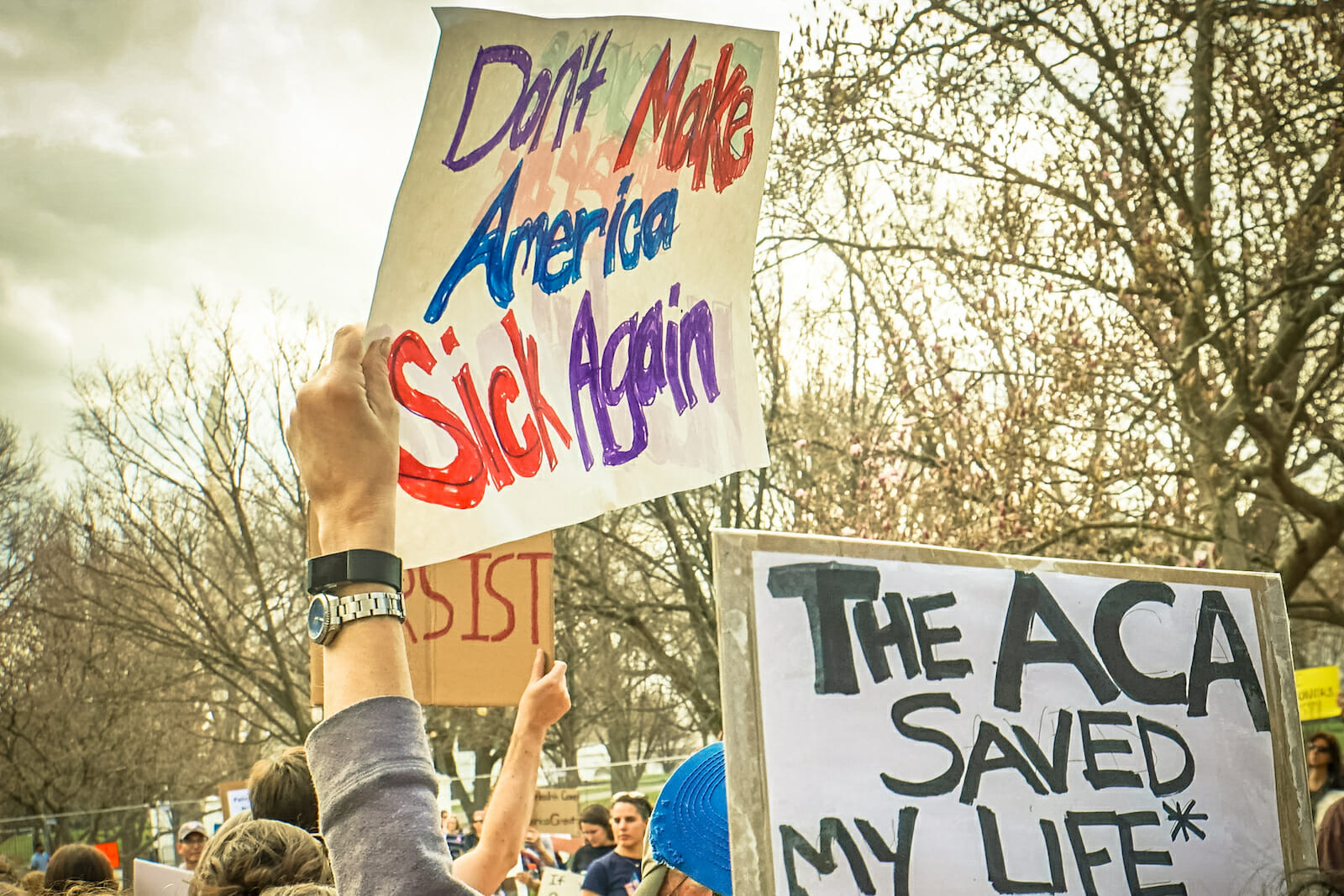
Health
Side Effects of Passing Single Payer Healthcare
As the Republican majorities in Congress ponder what their version of national healthcare, or lack thereof, might look like, those on the left are increasingly considering a transition to single-payer health care. Single-payer can mean a lot of things, but the most common description goes something like, “an insurance plan issued by a non-profit and/or public entity, financed by taxes.” Most advanced countries in the world have systems that either are or resemble single-payer.
The key difference between what they have and what America might experience in a transition to single-payer is that almost all of these other countries transitioned to single-payer decades ago, from a system in which many or even a majority of people lacked insurance at all. There was not much loss-aversion to speak of, since most ended up gaining insurance, and the insurance they gained didn’t replace another commodity with market value.
There are many lenses one might apply when examining how America’s hybrid, multi-payer healthcare system might transition to single-payer, but most of them seem to be logistical or political. How might proponents of single-payer handle transitioning the 90 percent of Americans who already have health insurance into a public plan?
What I have seen considered less frequently (or really at all) are the economic ramifications of taking a commodity currently worth something and rendering it valueless. After all, though commercial health insurance may not be equitably distributed or consistently valuable, it does produce some wealth some of the time.
It’s helpful to think of commercial health insurance policies the way we might other commodities, like oil or corn. Insurance companies issue policies. Using actuarial projections and within the constraints of the ACA, they establish an ongoing, expected cost to insure an individual based on how much health care they estimate that individual will consume. The profits these policies render via premiums comprise the value of the commodity and also, incidentally, a good deal of the insurers’ underlying value.
In a transition to single-payer, health insurance policies are rendered economically valueless because they would be issued by the government at no profit, and commercial insurers would be driven out of the market either by fiat or because they can’t compete. This would constitute the removal of wealth from the economy, not unlike what might happen if the government passed a law saying that companies could no longer remove oil from the ground; the value of the oil reserves, currently taken into account when valuating oil companies, would become zero, and so would that aspect of the companies’ valuations. To try to winnow this question down, let’s look at the top ten health insurers in the U.S. by size (according to Forbes).
The companies that stand to lose the most in a move to government-provided health insurance are worth about a quarter of a trillion dollars in value, and a half-trillion dollars in annual sales, which is to say, mostly in policies sold. That’s about 1% of the total U.S. market.
Let’s presume that that wealth would not be totally wiped out. In single-payer countries like Canada, there’s still some room for commercial insurers, specifically in dental and eye care insurance, prescription drugs, and supplemental insurance. The core product of health insurance that covers primary, specialty and emergency care would be subsumed by a public insurance offering. Moving to single-payer would effectively remove 1% of the total value of the U.S. market by rendering the commodity of policies issued valueless.
During the Great Recession, the U.S. market lost about $16 trillion in value, and while it was catastrophic, American society did not collapse. That’s not to say that making a major U.S. market obsolete wouldn’t hurt anyone, but it does put it into perspective. How safe an investment have we traditionally perceived insurance companies to be? I’m sure opinion will vary wildly here, but a preliminary search on Investopedia yields the following: “Historically, the insurance sector has enjoyed modest returns and perceived safety. It’s been a favorite for investors who want a slice of the financial-sector pie without worrying about the risks of investment firms or banks. You might also enjoy the sector’s diversity and subsidiary relationships.”
I assume then that means you’ll find health insurance companies in all kinds of mutual funds and investment portfolios held by risk-averse players, like pensions. How would they be affected if commercial health insurance policies were rendered without economic value? The speculative effects on the market and investors are why proposals like Bernie Sanders’ Medicare for All gradually expand the transition into single-payer over years. Proposals like Sanders’ trade financial pain for political pain, softening the economic impact of nullifying a quarter trillion dollars of wealth while contending with a succession of “cliffs” where people who help to pay for single-payer via taxes don’t yet qualify for its benefits.
This shouldn’t be underestimated. The ACA faced numerous and repeated challenges, one of which came in the form of those who didn’t qualify for Medicaid and so were subject to the volatility of insurance exchanges, including failing websites and soaring premiums. The U.S. market contracts all the time, sometimes drastically and suddenly. Certainly, removing policies’ value would not devastate America forever and ever, though I’m sure some will paint it that way, but the question remains: what is the cascading economic effect of nullifying the value of a commodity worth 1% of the U.S. market?
Perhaps the more pertinent point remains: would the sudden shock of removing 1% of value from the U.S. market really be bigger than the political shocks, felt year-over-year for a decade, of a gradually expanding Medicare program? Given what we now know about what the U.S. economy can survive and the benefits of single-payer, might a “big bang” approach to single-payer be preferable? Only time will tell if single-payer healthcare will become an American reality…

